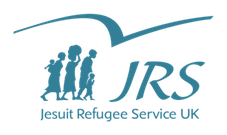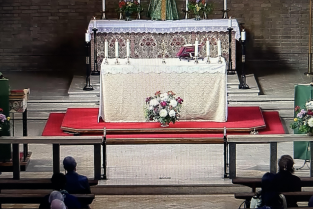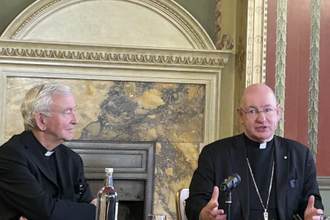Over a thousand trafficking victims detained in prison-like conditions last year

Source: JRS
More than 1,200 immigration detainees were found to be potential trafficking victims before, during or after time spent in immigration detention centres in 2019. The newly released Home Office figures were secured by data-mapping project After Exploitation via Freedom of Information (FOI) request.
The Home Office oversees several processes designed to recognise and prevent modern slavery victims from wrongful detention. Crucially, the department oversees a detention safeguard called 'Detention Gatekeeping' which is meant to identify immigrants too vulnerable to detain - including those who have been trafficked.
This newly-released data suggests that in more than 1,200 cases last year, safeguards intended to identify trafficking victims failed to prevent them from being detained.
The Government department is also responsible for identifying human trafficking victims (as a 'statutory First Responder') and deciding who is a trafficking victim (through a process called the National Referral Mechanism).
In July last year, over 20 NGOs signed an open letter asking the Government to reassess the Home Office's involvement in decision-making on both detention vulnerability and human trafficking claims. More than 30 organisations have also joined After Exploitation's calls for the Government to regularly report on slavery outcomes.
The Government has committed to reducing the number of people detained. However, the findings suggest a rise in the number of potential modern slavery victims held in Immigration Removal Centres between 2018 and 2019.
Director of After Exploitation, Maya Esslemont, said: "Victims of slavery are often held by their abusers in restrictive, psychologically damaging conditions. This data suggests that hundreds - if not thousands - of potential victims are being subjected to a secondary form of imprisonment even after they escape exploitation.
We are seriously concerned that, since our initial findings in 2019, no meaningful safeguards have been put in place to prevent the detention of slavery survivors in need of support."
The figures also reveal the number of 'confirmed' individuals recognised initially, or after detention, as victims of trafficking by the Home Office. Of immigration detainees held in 2017, 225 have since been confirmed as victims of slavery, as were 106 held in 2018, and 42 held in 2019. Charities supporting both slavery victims and immigration detainees suggest that growing barriers prevent victims from eventually receiving a positive outcome in their trafficking claim through the National Referral Mechanism (NRM), and that detention can negatively impact a victims' chances of receiving support and recognition.
Numerous individuals recognised as 'potential' trafficking victims, detained in 2019, may have since received confirmation of their trafficking status since September 30th 2019. However, a lack of regular reporting makes it impossible to know what outcomes these potential survivors have received.
The Jesuit Refugee Service (JRS) UK's Director, Sarah Teather, said: "This fresh, horrifying data on detention of victims of trafficking is further and compelling proof of a reality that JRS UK encounters regularly. Time and again, survivors of trafficking are failed by a system that prioritises immigration control over identification and supporting people who have been trafficked. It is time for change. Behind each of these numbers is a human person with a human story. We support victims of trafficking through our work in Heathrow IRC, and observe how profoundly traumatising detention is for them".
Anti Slavery International's Programme Manager, Kate Roberts, said: "In prioritising immigration control over supporting victims of crime, the UK risks playing into the hands of traffickers. Survivors of trafficking regularly tell us that their exploiters use the threat of immigration detention to control them. When people who have been trafficked are detained their traffickers win.
Instead of being recognised as a victim of crime, trafficked people are locked away with the prospect of immigration removal. In practice, it means survivors often won't be able to support prosecutions against their trafficker or access compensation for their ordeal."
Dr Frank Arnold, member of Medact and clinical director of Forrest Medico-Legal Services said: "As a doctor I have examined several people who have been trafficked, then arrested and detained for extended periods, and have then very belatedly received reasonable or conclusive grounds decisions by the National Referral Mechanism. Unsurprisingly most displayed strong evidence of traumatisation from the trafficking and persisting exacerbation of PTSD from re-traumatisation as a result of detention. The reason is simple: To take a trafficked person who is no longer under control of their abusive exploiters and subject them to detention is to substitute one form of powerlessness for another.
Under the Adults at Risk policy introduced by the Home Office, there is a duty upon clinicians working in detention centres to screen their patients for evidence of vulnerability, so that this information can inform caseworkers' decisions to release or maintain detention. Successive reports by parliamentary bodies, government appointed enquiries, inspectorates and charities have shown that this system is not an effective safeguard against avoidable, harmful, expensive and sometimes unlawful detention of trafficking victims."


















